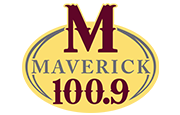Daylight Saving Time was repealed after World War One, then reinstated during World War Two to conserve energy. Then it stuck, and Congress passed the Uniform Time Act in 1966 to lock it in.
If you’re tired because we moved the clocks ahead, just hope it’s the ONLY side-effect you have. Here are four ways daylight savings can affect your health. Sorry . . . happy Monday?
- You’re more likely to have a heart attack. A study in Michigan last year found that between 2010 and 2013, there were 25% more heart attacks on the first Monday after daylight savings . . . meaning today. And a study in Sweden found you’re more likely to have a heart attack for the first THREE days after daylight savings starts.
- Work-related injuries are more common. According to a 2009 study in the Journal of Applied Psychology, you’re more likely to get hurt at work today. And it’s also more likely to be a SERIOUS injury.
- You’ll probably eat more. Maybe not if you went to bed earlier than usual last night. But a recent study found that when people got an hour less of sleep, they ate an average of 200 more calories the next day. (MNN / DailyMail)
So our advise to you today is STAY IN BED! Catch up on your sleep and just use tomorrow as your Monday. Then after you’re rested, maybe we can all band together to write Congess

